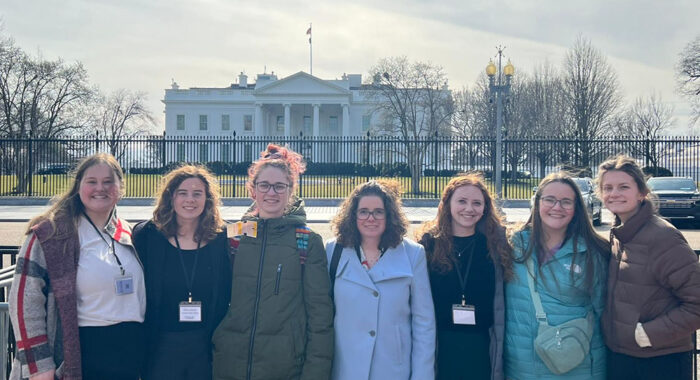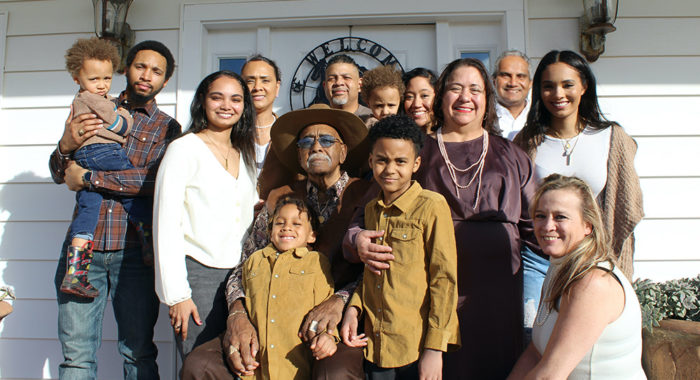Nina Schmidgall is director of family ministry at National Community Church in Washington, D.C. While working in the nation’s capital as a legislative director in the House of Representatives, writing and directing education and family policy, Schmidgall realized her passion for strengthening the family and the home. She has overseen the family ministry department at NCC since 2001. In that time, NCC has grown their children’s programs to seven locations.

As people change, families change as well. Our approach to passing faith to the next generation must consider the needs and values of today’s young family.
“Real” Rather Than “Relevant”
Churches must reach today’s young parents — who were generally born between 1980 and 1991 — in order to reach the next generation.
These young parents care about source. They show their preference for things that are organically grown, locally sourced, sustainable and traceable. They want the purest version of everything they consume. Fog machines, large personalities and performance driven productions are not attractive to today’s parents who crave authenticity and honesty.
In this ever-changing world, young parents are drawn to the anchors of a historic faith. They want to expose their children to the rich traditions of our beliefs. They are moved by ritual, sacraments and the purity of spiritual disciplines, and are attracted to authentic relationship with God. Churches need to connect families to the source of our faith and the simplicity of the gospel.
Partnership With Parents
Churches must remember that parents are the main faith influencers for their kids. Research verifies that faith is nurtured primarily in the home. In a given year, the average parent has 75 times more hours in the life of a child than a church leader. So, churches must make it top priority to support parents in sharing their faith at home.
When I first had kids of my own, I became aware of my deep desire to introduce my children to the God I loved so deeply. But where was I to start? Even the best-intentioned families are anxious for ideas and well-timed reminders. Parents are desperate for support and encouragement. They welcome any resource that helps them share their faith in their home. Parents are hopeful for cues for how to invite their kids into their relationship with the Lord.
Churches need to prioritize ministry that goes beyond well-executed children and youth programming each weekend. Here are some steps churches can take to partner with parents:
- Cue parents at strategic times. Provide prompts that make it easy for parents to engage with their kids about faith at home.
- Provide resources and tools for parents to navigate the difficult days of parenting. Create written materials as teaching resources. Host events that explore important topics like discipline, technology and navigating crisis or divorce. Ensure your church refers or offers counseling for parents that need extra support.
- Offer opportunities for parents to connect with other families of faith. This might be in the form of small groups or meet-ups in which young parents can build a strong community of support and encouragement.
Intergenerational Connection
Churches need to be intentional about helping young people make connections across generations.
In one of the most compelling stories in the book “Sticky Faith,” researcher and author Kara Powell describes Thanksgiving dinners when she was a child. She explains how the adults would sit at the dining room table with fancy china and silverware. Meanwhile, the kids would sit nearby at the “kid table,” a folding card table with paper plates and plastic utensils. She shares, “In theory, we were at the same meal. In reality, we had two very different experiences.”
Sometimes, in an attempt to create compelling and relevant environments for young people, we unintentionally separate them from the opportunity to see faith displayed across generations. While age-appropriate worship opportunities with kids are important and necessary, intergenerational relationships and worship experiences are also key to building lasting faith in young people.
The research by Fuller Youth Institute shows us that young people who experience more worship alongside other generations tend to have higher faith maturity. Shared service opportunities, worship experiences and age-diverse relationships showed one of the most robust correlations with faith maturity.
Engage Other Adults
Churches need to mobilize other adults to step into the lives of young people. We need to encourage parents to invite other adults with shared values into the lives of their kids.
As a longtime researcher of youth and family ministry, Chap Clark of Fuller Youth Institute shares that for years, youth ministers used the 5:1 ratio in youth ministry — one adult invested in the lives of every five kids. But, he proposed, we actually need more like five adults all invested into one kid.
These adult partners may include other family members, coaches, teachers or their small group leader at church. In our house, I should probably be offended at how excited my children get when they have a babysitter! But I choose these sitters with great intentionality. They invest in my kids and become important influences in their lives.
Decades of research show that kids are most likely to follow Jesus into adulthood if they grow up amid a group of Christ-following adults. As Reggie Joiner, founder and CEO of Orange, a nonprofit that supports children and youth ministry, says, “The best way for a kid to know God is to know someone who knows God.”
Mission Minded
Finally, churches need to give families an opportunity to engage. One of the marks of the next generation of families is that they desire to be a part of positive solutions in their communities and in the world. They want to wrestle with difficult topics and be given opportunities for action.
In my ministry with families, I find them most often asking for support in navigating hard topics with their kids. They want to lead their children on topics of diversity and global awareness. Families are also hungry for opportunities to serve together.
We have an opportunity to position the church to welcome the next generation of families. Imagine if churches presented a community of authentic believers passionate about relationships with young people, and offered opportunities for families to use their gifts to care for the broken world around them. That would catch the attention of families.
This article originally appeared in Evangelicals magazine.



 View All Articles
View All Articles 




























